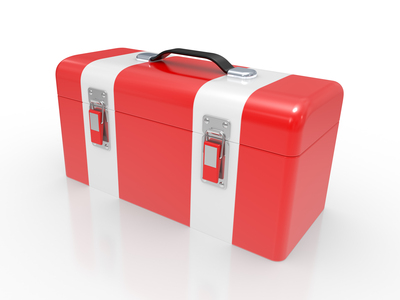 Stress and anxiety often go hand in hand in our society. They are a normal part of the human experience and can be triggered by both good and bad stressors. Good stress happens in relation to something exciting or positive happening in your life, while bad stress comes from a negative or difficult situation or perception. Yet, both of these stressors produce the same symptoms—so it’s important to know how to manage stress of all kinds.
Stress and anxiety often go hand in hand in our society. They are a normal part of the human experience and can be triggered by both good and bad stressors. Good stress happens in relation to something exciting or positive happening in your life, while bad stress comes from a negative or difficult situation or perception. Yet, both of these stressors produce the same symptoms—so it’s important to know how to manage stress of all kinds.
One way you to do this is by creating your own stress reduction toolkit. This is essentially a go-to arsenal of coping strategies you can use any time your stress level increases.
Here’s how to do this yourself:
3 Create a stress-buster list. As part of your toolkit start by creating a list of things you can do next time you’re faced with a stressful situation or prolonged anxiety—and then keep the list handy. Go ahead and write both things you can do in the moment, as well things to do after the stress or anxiety has passed. These might include coping strategies, positive affirmations, things to visualize, reminders of what is true for you, and anything else that is helpful.
3 Keep your list easily accessible. If you know you might need your stress buster list on the fly, consider putting it on an index card or something smaller that will fit in your wallet. You can also copy the list and keep it in a notebook. If stress at work is a problem, perhaps have something you can put in your desk. The important thing is to create your list while you’re feeling objective and can think clearly.
3 Make the toolkit fun. Consider taking it a step further and investing in some personal items to combat stress or to use for relaxation. These could be things you can access at home that are reserved for reinvigorating you. Items like bubble bath, candles, an inspiring book, photos of loved ones or beautiful places, hot chocolate or another favorite treat, and even silly things from childhood like crayons and sketch paper can be a healthy reminder not to take stress too seriously. Sometimes all we really need is some time out to avoid the detrimental physical and mental effects of stress.
Lastly, it’s helpful to educate yourself as much as possible about the symptoms of stress and anxiety. Things like increased heart rate and respiration can clue you in that your stress level is elevating—and alert you that it’s time to take out your toolkit. When you can recognize that stress is manageable and that you have go-to coping strategies, you’ll be happier and healthier overall.


Speak Your Mind